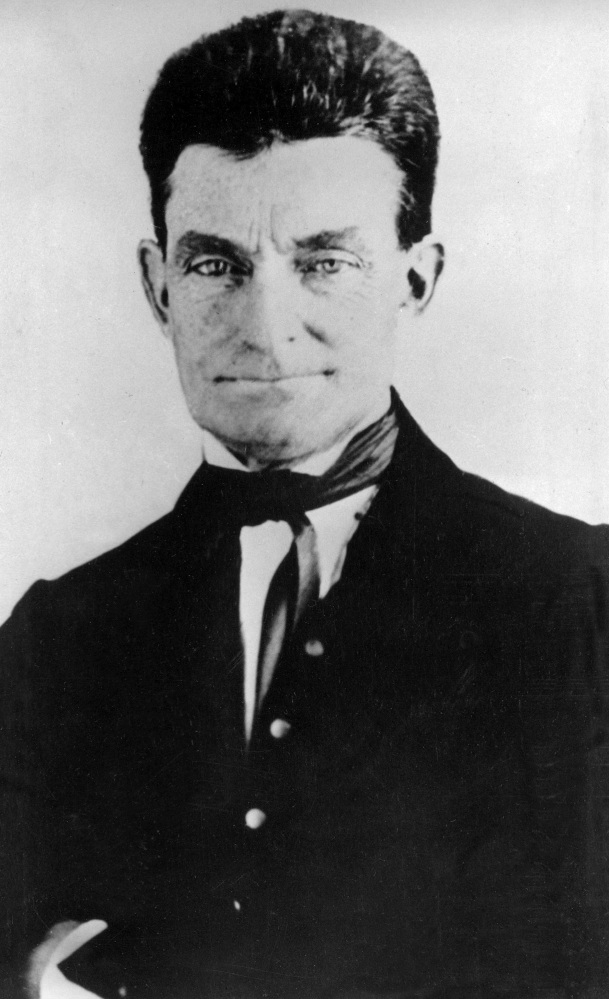MONTPELIER, Vt. — As some communities consider removing Confederate monuments, Vermont is formally honoring abolitionist John Brown, whose 1859 raid was an important step in the events that led to the Civil War.
The state legislature approved a resolution this spring sought by a Woodstock high school teacher designating John Brown Day in Vermont on Oct. 16, 2017. That’s the anniversary of the raid Brown led on a federal arsenal in Harpers Ferry, in what is now West Virginia, hoping to start an armed slave rebellion. The rebellion didn’t happen, and Brown was hanged two months later for treason.
In recognition of Brown, who is both venerated and much maligned, the Woodstock Social Justice Initiative is holding an anti-racism symposium on Oct. 14 at the Woodstock Union High School, where Brown will also be discussed with students on Oct. 16.
Bradley Archer, a teacher who has admired Brown for some time and is member of the initiative, said he was pleased the state was recognizing Brown in a time of tension “over which people we should celebrate and which we should condemn.”
Before the raid, Brown and a group of abolitionist settlers killed five pro-slavery settlers in Kansas in the Pottawatomie massacre.
Days before the massacre, Lawrence, Kansas, was sacked by pro-slavery associates of Brown’s five victims, Archer said. Abolitionist Sen. Charles Sumner was nearly beaten to death in the Senate for railing against the raid, he said.
“Given the wickedness of slavery and the terrorism used to sustain it, we should be able to understand, if not excuse, Brown’s actions,” he said.
Before heading to Kansas, Brown lived in North Elba, now Lake Placid, New York, and he visited Cavendish, Vermont, in 1857. It was likely to speak with Gov. Ryland Fletcher, an abolitionist, after the Legislature had approved a $20,000 appropriation to support the anti-slavery settlers in Kansas, said Civil War historian Howard Coffin.
While in New York, Brown made trips to Vergennes, Vermont, to shop for groceries and other supplies, Coffin said. After his death, his wife brought his body back to New York for burial. On the way she spent a night in Rutland and stopped in Vergennes, where a big crowd gathered, with some cutting souvenir pieces of wood out the box the casket is in, said Coffin.
“Brown understood that this was serious business and we’re dealing with 400 million enslaved people. Somebody’s going to have to get tough sooner or later or it isn’t going the end,” said Coffin. “I think he’s one of the great Americans.”
Copy the Story LinkSend questions/comments to the editors.



Success. Please wait for the page to reload. If the page does not reload within 5 seconds, please refresh the page.
Enter your email and password to access comments.
Hi, to comment on stories you must . This profile is in addition to your subscription and website login.
Already have a commenting profile? .
Invalid username/password.
Please check your email to confirm and complete your registration.
Only subscribers are eligible to post comments. Please subscribe or login first for digital access. Here’s why.
Use the form below to reset your password. When you've submitted your account email, we will send an email with a reset code.